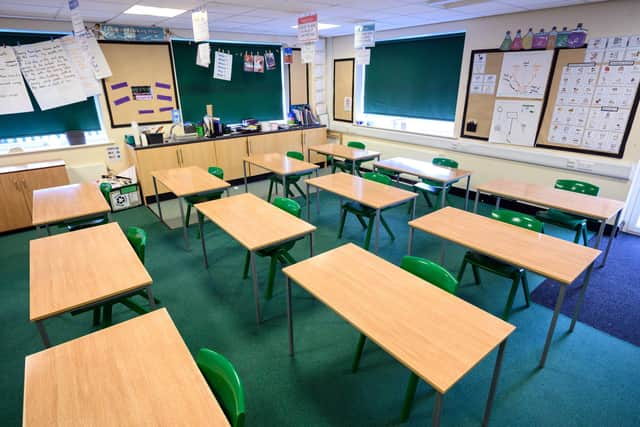Unauthorised school absences in Nottinghamshire have almost doubled since before Covid pandemic
and live on Freeview channel 276
The Association for School and College Leaders (ASCL) said attendance is ‘one of the biggest challenges’ schools must face, with several complex factors contributing to the problem.
Department for Education (DfE) figures show 241,000 of 11.7 million school sessions were missed without permission by pupils in Nottinghamshire.
Advertisement
Hide AdAdvertisement
Hide AdIt meant children in the area had an unauthorised absence rate of 2.1 per cent.


The school day is split into a morning and afternoon session, with every child expected to attend all sessions.
In the 2018-19 spring term, the unauthorised absence rate was 1.1 per cent, meaning it has almost doubled during the coronavirus pandemic.
Nationally, 2.3 per cent of pupils missed school without permission in the spring, almost double the 1.2 per cent who were absent from lessons in 2018-19.
Advertisement
Hide AdAdvertisement
Hide AdJulie McCulloch, director of policy at the ASCL, said there are several complex factors causing rising absence rates.
They include mental health issues, exacerbated by the pandemic, a lack of support for children with special educational needs, with schools lacking resources to deal with them, and the cost-of-living crisis, with 30 per cent of children growing up in poverty.
She added: "It will take concerted Government action to address these issues, all of which are linked to high levels of pupil absence, and ensure all children are getting the support they need."
The overall absence rate has also risen across the country, from 4.8 per cent in the 2018-19 spring term to seven per cent last year.
Advertisement
Hide AdAdvertisement
Hide AdIn Nottinghamshire, 768,000 school sessions (6.6 per cent) were missed in the latest spring term.
A DfE spokesperson said: "The vast majority of children are in school and learning, and we are taking action to increase attendance because it is vital for a child’s education, wellbeing and future.
"We have expanded our attendance hubs, which will support more 400,000 pupils across 14 hubs and provided a toolkit for schools about communicating with parents on this issue.
"Our mentoring programme, delivered by Barnardo’s, sees trained mentors work directly with 1,665 persistently and severely-absent children and their families to understand and overcome the barriers to attendance and support them back into school."